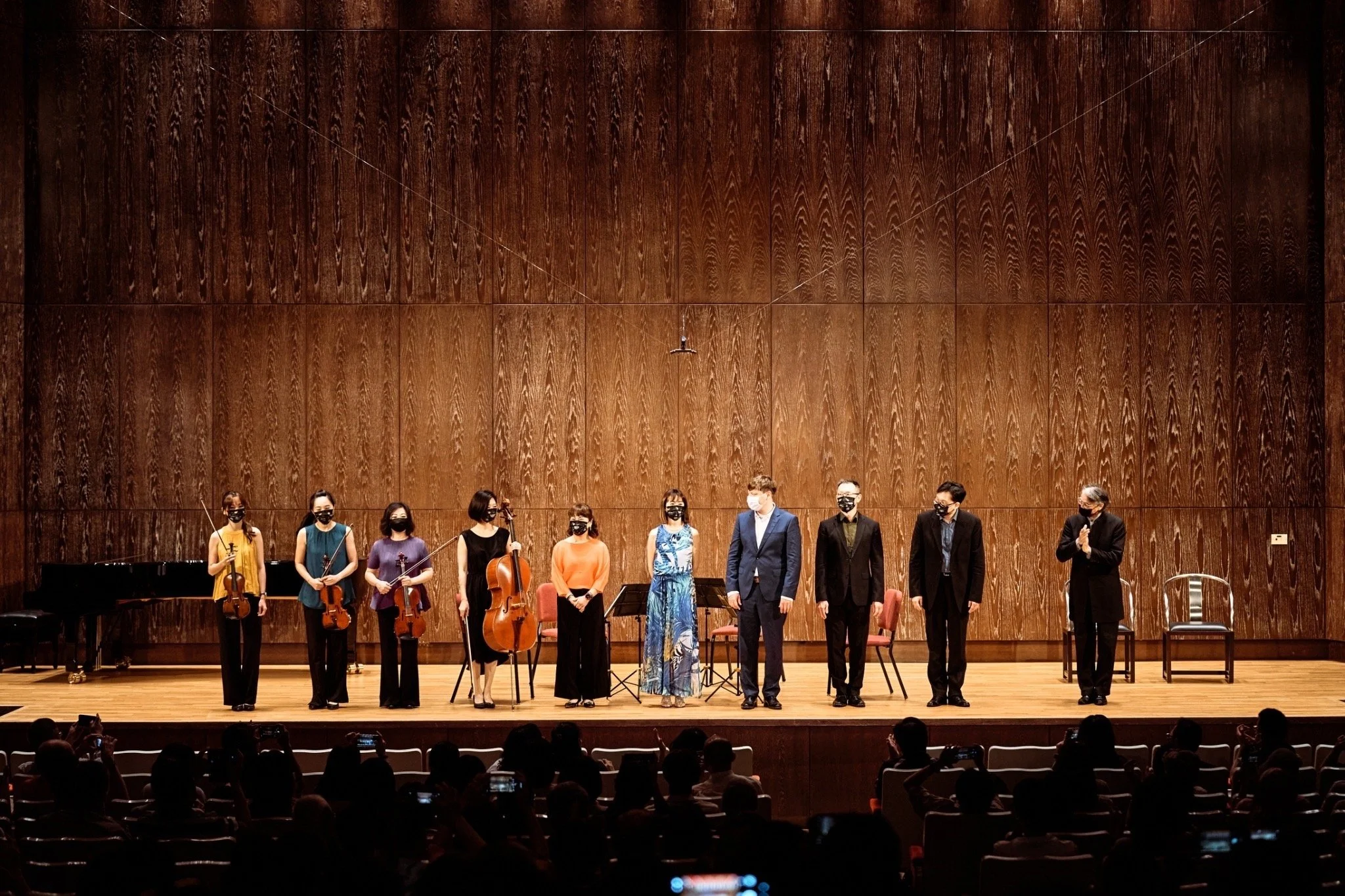Taiwan Philharmonic Reveals its Programme for Season 2022/23
Nikolai Saratovsky at the piano
Courtesy of Taiwan Philharmonic
TAIPEI, Taiwan — If I were to sum up what I’ve been up to this summer so far, I would say without hesitation that I’ve dived into this fascinating world of Western classical music. Some readers may know that I’ve attended various concerts performed by the Taiwan Philharmonic in July alone, one of them is the “New Season Salon Concert” held at the National Recital Hall.
This salon concert began with pianist Nikolai Saratovsky playing Franz Liszt’s “Pastorale”, “Orage” from Années de Pèlerinage Book 1, S.160. Though the performance was brief, the first composition evoked a vivid imagery of rural landscape bathed in warm sunlight, whereas the second composition, ‘Orage’ (French for “storm”), made me feel as if I were on a ship braving the storm.
Jun Märkl, Music Director of the Taiwan Philharmonic, drew our attention to the word pèlerinage (French for “pilgrimage”) by referring those sitting in the audience as “pilgrims” who are about embark on a journey to explore what the Taiwan Philharmonic, also known as the National Symphony Orchestra (NSO), has to offer in the upcoming Season 2022/23.
Jun Märkl at the “New Season Salon Concert”
Courtesy of Taiwan Philharmonic
In this concert, Märkl was more than a host; he was a well-versed lecturer in the history of music. It turns out that the development of music styles had much to do with history. Like a good storyteller, Märkl recounted the series of events that prompted late 19th-century and early 20th-century French composers to redefine “French music”. It was intriguing to hear Märkl drawing a parallel between music developed at the time to that of impressionist art, a movement that reached its peak during the 1870s and 1880s in France.
Just like how an impressionist painting is characterised by its seemingly spontaneous brushstrokes and colours that are softly blended into each other, music inspired by the movement also blends the “colours” of sound by experimenting with musical instruments, such as, the unusual pairing of English horn and viola, adding damper to trumpet, and playing high notes with viola. In this case, members of the orchestra are like painters, each adding a different “colour” yielded by their musical instrument to complete the canvas.
May-Lin Ju (clarinet) and Chung-Hua Weng (piano) playing Debussy’s “Première Rhapsodie”
Courtesy of Taiwan Philharmonic
French composer Claude Debussy is best known for introducing the music style of impressionism towards the end of the 19th century. In the salon concert, audience got a glimpse of how Debussy’s impressionist work could evoke a particular mood or atmosphere, such as the composition “Première Rhapsodie for Clarinet and Piano”. Its free-style form curiously reminded me of jazz, while its whimsical melody made me fell in love with clarinet, touched by its mellow but incredibly lustrous, penetrating sound that I was previously unaware of.
Among the selection of musical compositions performed in this concert was “Piano Trio №1 in D minor, Op.49, II & III mov” by Felix Mendelssohn, “String Quartet in F major, M.35, II mov” by Maurice Ravel, and “Prelude in G Minor, Op. 23, №5” by Sergei Rachmaninoff. Märkl remarked how Rachmaninoff belongs to the last generation — after Bach, Beethoven and Mozart — of great pianist-composers. In today’s world, playing piano and composing music are considered two different disciplines.
Since Season 2021/22, the Taiwan Philharmonic has — under the lead of Jun Märkl — planned its programme based on Theme, Region, and Composer. In Season 2022/23, its programme will continue to explore the diversity of classical music in these three areas.
Liszt’s compositions performed in the beginning of this salon concert was in fact a hint at the Theme. Inspired by the beauty of nature that Märkl has discovered throughout his stay in Taiwan, he has chosen “Nature” as the Theme of the Season.
Curtain call for the “New Season Salon Concert” at National Recital Hall, Taipei
Courtesy of Taiwan Philharmonic
In particular, Märkl wants to highlight the “Ocean” as a sub-theme. The obvious reason being that Taiwan is an island surrounded by sea. But most importantly, it’s the emotion that the ocean has brought to him when he was visiting Taiwan’s East coast. In Märkl’s view, the vastness of the ocean bears similarity with music — one that’s also full of possibilities.
An oceanic-theme repertoire will be performed in the upcoming performance “NSO & Jun Märkl & Ocean” in September, in the hope of exploring the different ways that ocean was interpreted by composers, be it a faithful description or an emotional response to it.
Personally, I was intrigued when I learned that the selection of musical compositions can actually be associated with the “place” or locality where the music is played, which surely adds depth to the audience’s overall experience.
In continuation of previous season, France remains to be the new season’s Region in focus, whereas Sergei Rachmaninoff and Maurice Ravel have been selected as the Composers.
Yesterday, the Taiwan Philharmonic published a detailed programme of its Season 2022/23 online. In this issue, one also finds a selection of essays (in Chinese) on the various subjects that will be explored throughout this new season — perfect for readers who would like to discover this programme in depth while learning about the history and context in which some of the musical compositions were developed!
“New Season Salon Concert” was held at the National Recital Hall in Taipei City on July 17th, 2022.




